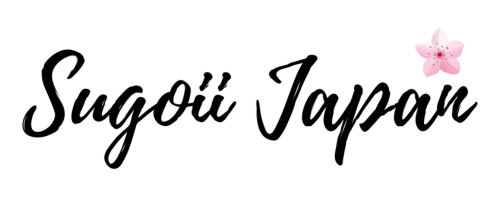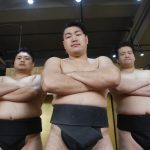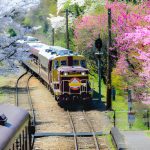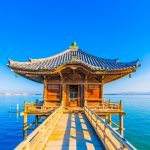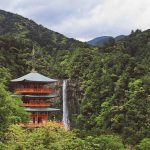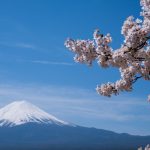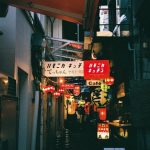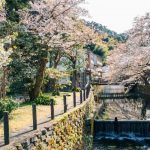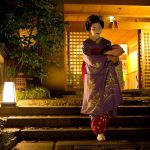Sitting slightly west of the bustling famous city of Shibuya sits Setagaya, a charming, off-beat ward packed with hidden gems, stunning scenery, and delicious eateries. Of the 23 special wards in Tokyo, Setagaya is home to the largest population; however, you wouldn’t be able to tell from how low-key the ambiance is when perusing the streets.
Setagaya is known by locals for its trendy shops, relaxed residential vibes, art galleries, and local artists’ presence. While it’s still relatively unknown to foreigners, we’re hoping to change that, because missing out on chilling out to the laid-back atmosphere of Setagaya when it’s a stone-throw away from dynamic cities such as Shibuya would be a real shame!
We’ve curated a wonderful list of the 20 best things to do in Setagaya, so if you’re wondering what this neighborhood has to offer, read on!
1. Explore the Charming Neighbourhood of Shimokitazawa

Shimokitazawa, affectionately known as Shimo by the locals, has been trending on the radar for foreigners over the past few years. Its trendy and bohemian vibes draw people from all over Tokyo to shop its plentiful vintage stores, hipster second-hand shops, and funky cafes.
During the day, you’ll likely witness fashionistas browsing the racks out the front of clothing stores, hunting for their next unique find. At night, the neighborhood comes alive with restaurants and bars, often offering live music and performances by local musicians.

We recommend spending a few hours simply walking along the alleyways and seeing what you might happen to chance upon. As Shimo is only a short train ride away from Shibuya, you can easily slot in a short trip here on any day.
Directions: Shimokitazawa can be accessed via the Odakyu Line. It takes 7 minutes from Shinjuku.
Read More: The Best Things To Do In Shimokitazawa
2. Gotokuji Temple
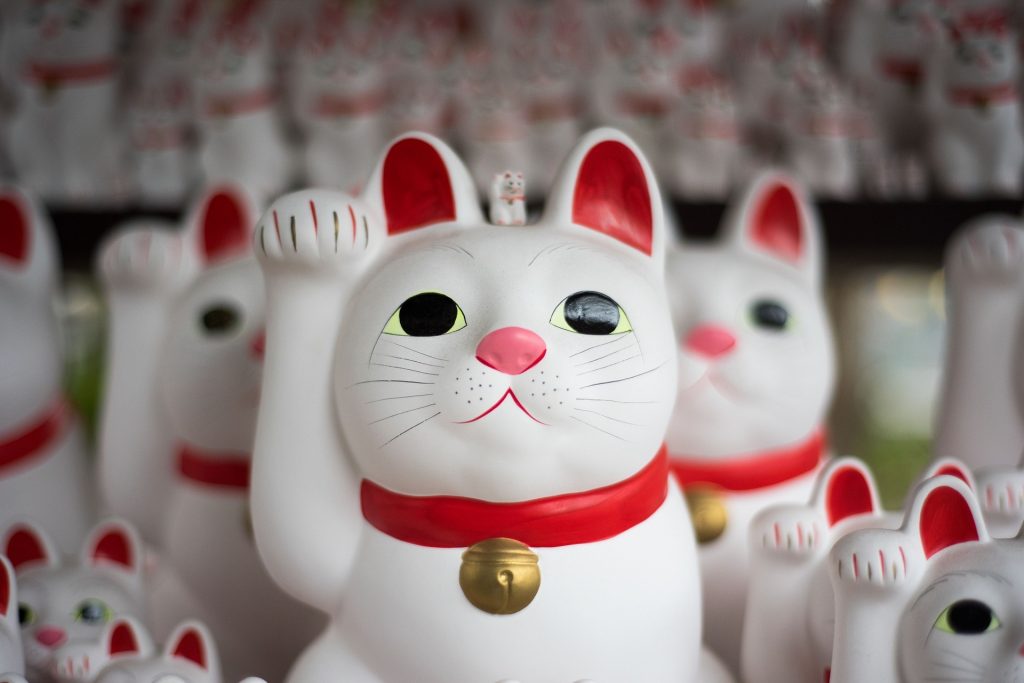
The famous maneki-neko temple is an absolute must, especially if you’re a cat-lover! This temple has been featured in many Instagram posts, but its unique charm remains unrivalled.
Gotokuji temple is known as the birthplace of the maneki-neko, a waving cat that has become a symbol of good luck. Across the entire temple, there are thousands of mani-neko figurines of all different sizes displayed – and they are increasing daily!

The maneki-neko figurine with a raised right paw welcomes money, and you will see it prominently displayed at the counter of many restaurants and stores. The maneki-neko with a raised left paw welcomes people.
If you like these lucky cats, you can buy them online here: Maneki Neko Shop.
We guarantee that there will be lots of fun photo opportunities here!
- Address: 2 Chome-24-7 Gotokuji, Setagaya City, Tokyo 154-0021, Japan
- Directions: It is a 10-minute walk from Gotokuji station.
3. Todoroki Valley
You may not believe it, given the sprawling urban jungle that Tokyo is, but in the middle of Setagaya is Todoroki Valley, a gorgeous pocket of greenery that feels as though you’re in a completely different country.
Todoroki Valley comprises a 1.2km stretch walk along the Yazawa River, underneath a canopy of overhanging bamboo trees. During summer, it is a popular spot to go for a stroll as the shade and proximity to water will somewhat cool you down despite the infamous Japan humidity!
Todoroki Fudo is a temple that sits on one end of Todoroki Valley, and it’s a superb spot for cherry blossoms viewing in spring!
- Address: 1 Chome-22-26 Todoroki, Setagaya City, Tokyo 158-0082, Japan
- Directions: The entrance begins just outside of Todoroki Station, which lays on the Tokyu Oimachi Line.
4. Visit The Carrot Tower Observation Deck

The tallest tower in Setagaya is also orange, hence its name, the Carrot Tower!
A wonderful way to pass the time and take in the serene sights of this charming city would be to head up to the 26th-floor observatory deck – which, mind you, is free to enter!

If you have time, plenty of the other floors boast shops where you can purchase souvenirs and restaurants for you to have a good feed before moving on.
- Address: 4 Chome-1-1 Taishido, Setagaya City, Tokyo 154-0004, Japan
- Directions: It is a few minutes’ walk from Sangenjaya Station, which sits on the Tokyu-Den-Entoshi Line.
5. Learn a Bit of History at Shoin Shrine

Shoin Shrine was built in honor of Yoshida Shoin, a forward-thinking activist who was passionate about enlightenment as well as learning and adopting Western ways into the then-immensely traditional country of Japan.

Because he made a stand, he was sentenced to death at a young age during the 1800s. Today, you can visit this shrine, learn more about his life and history, and pay respect to one of Japan’s earliest pioneers of western ways.
- Address: 4 Chome-35-1 Wakabayashi, Setagaya City, Tokyo 154-0023, Japan
- Directions: It is a 3-minute walk from Shoin-Jinja-mae Station.
6. Setagaya Park

Setagaya Park is a sprawling park of 78,000 square meters that is beautiful across all seasons of the year. It’s extremely popular with locals as it serves as a place for a quick stroll to clear the head, or a leisurely stroll on the weekend, a fantastic picnic spot, and even a versatile sports park.
In springtime, rainbow colors burst along the flower gardens, and in autumn, the park is awash with golden colours.
There is also a mini steam train that slowly runs through the park over a 3-minute loop a few days a week. Children may board this mini-train for 50 yen.
- Address: 1 Chome-5-27 Ikejiri, Setagaya City, Tokyo 154-0023, Japan
- Directions: It is a 13-minute walk from Sangenjaya Station.
7. Setagaya Boroichi

Setagaya Boroichi is a wonderfully unique flea market that’s been going strong for a few centuries now – in fact, the earliest record of this flea market would be in 1572!
More than 700 vendors open up their stalls to sell a huge range of items, from fresh market food to antiques, arts and crafts, and even clothing.
However, sadly it is not a weekly thing. It is only held twice a year, on December 15 and 16, and January 15 and 16. If you happen to be in Japan during those times, we highly recommend you drop in and see what treasures you’ll come across!
- Address: 1 Chome-5-27 Ikejiri, Setagaya City, Tokyo 154-0023, Japan (It’s located within Setagaya Park)
- Directions: It is a 13-minute walk from Sangenjaya Station.
8. Hanegi Park

Hanegi Park is a popular park to visit in springtime for the annual Plum Festival. Over a few years, almost 400,000 people from all around Japan pour into Hanegi Park to take in the breathtaking views of the blossoming plum trees.
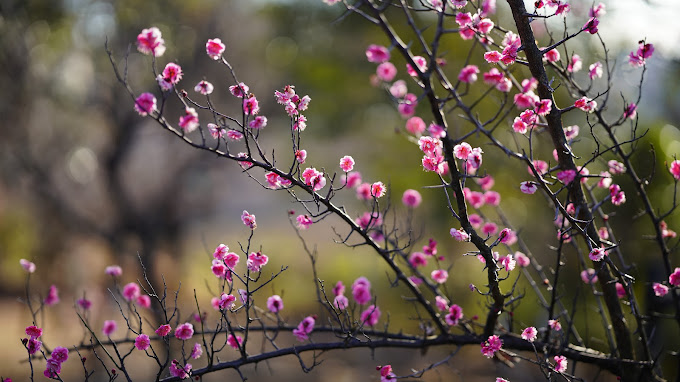
It is an exceptionally fun pastime to pack some food, get there early, and nab a spot directly under the trees. Once your picnic is set up, simply lay down and relax, and enjoy the beauty and serene atmosphere of the park.
- Address: 4 Chome-38-52 Daita, Setagaya City, Tokyo 155-0033, Japan
- Directions: It is a 5-minute walk from Umegaoka Station.
9. Komazawa Olympic Park
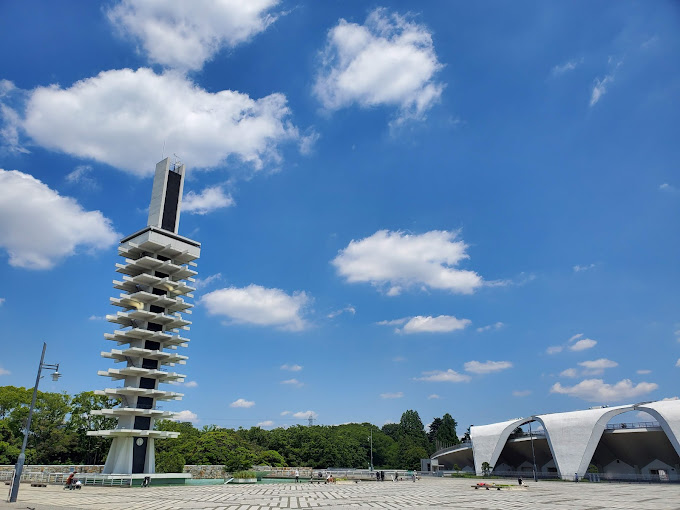
Komazawa Olympic Park was the official second stadium for the 1964 Tokyo Olympics. Nowadays, this versatile park is regularly used for a multitude of things, including smaller sporting events, festivals, and even markets.
If you’re interested, there is a cycling course within the stadium that is open to the public.
In and around the stadium, there are plenty of cafes for you to explore and enjoy a relaxed coffee in a beautiful setting surrounded by trees and greenery.
- Address: 1-1 Komazawakoen, Setagaya City, Tokyo 154-0013, Japan
- Directions: It is a 6-minute walk from Komazawa-Daigaku Station.
10. Seikado Bunko Art Museum

The Seidako Bunk Art Museum is a museum dedicated to shining light on cultural artifacts and artworks. It was originally established by Yanosuke Iwasak, the second President of Mitsubishi before it was heavily expanded on by his son Koyata.
It currently boasts 200,000 volumes of classical Japanese and Chinese texts, including seven National Treasures, 84 Important Cultural Properties, and a whopping 6,500 antique items from the Orient!
If you’re even the slightest bit of a history buff, we recommend you check this museum out.
- Address: Japan, 〒100-0005 Tokyo, Chiyoda City, Marunouchi, 2 Chome−1−1, Meiji Life Insurance Building, 1F
- Directions: It is a 2-minute walk from Tokyo Station.
11. Explore Futako-Tamagawa

The upscale neighborhood of Futako-Tamagawa sits along the river of the Tama River, making it a popular palace for people to live in.
It’s home to the hugely popular Takashiyama shopping mall, where you can spend all day browsing the shops because of how extensive their shopping directory is. On the other hand, the surrounds of Futako Tamagawa Station offer a generous handful of authentic local restaurants and shops.

Futako-Tamagawa also boasts a fun and relaxing riverside park where, on any given weekend, you’ll find people picnicking and bike riding around. Amid autumn in October, the Tama River Fireworks Festival draws thousands of people to its riverside to watch the consistently stunning display.
Directions: Futako-Tamagawa Station lays on the Tokyu Den-en-toshi Line and the Tokyu Oimachi Line.
12. Visit Hasegawa Machiko Art Museum & Hasegawa Machiko Memorial Museum

This museum displays art that has been specifically curated by renowned Japanese artist Machiko Hasegawa, who is the popular author of the manga series Sazae-san. Sazae-san centered around the life of a small, happy Japanese family that appealed to everyone across the nation and sent Machiko to soaring heights of popularity.
In 2020, the Hasegawa Machiko Memorial Museum also opened up across from the art museum, which highlights the life and work of Machiko Hasegawa.
Visit both and delve into the life of one of Japan’s beloved artists.
- Address: 1 Chome-30-6 Sakurashinmachi, Setagaya City, Tokyo 154-0015, Japan
- Directions: It is a 7-minute walk from Sakura-shinmachi Station
13. Visit Setagaya Art Museum

The Setagaya Art Museum is a space that celebrates life and art through regular exhibitions, programs, events, and various other activities. Simply put, there is always something going on at the Setagaya Art Museum.
Whilst you may think you’re heading there to visit the latest display, what you may not realize is that the Setagaya Art Museum is well and truly an artwork on its own. Its beautiful architecture is no small feat, and many people visit simply to take photos of the exterior of the museum.
- Find Out What’s Happening: Setagaya Art Museum
- Address: 1-2 Kinutakoen, Setagaya City, Tokyo 157-0075, Japan
- Directions: It is a 17-minute walk from Yoga Station.
14. Grab Cream Puffs at Shiro-Hige’s Cream Puff Factory Restaurant
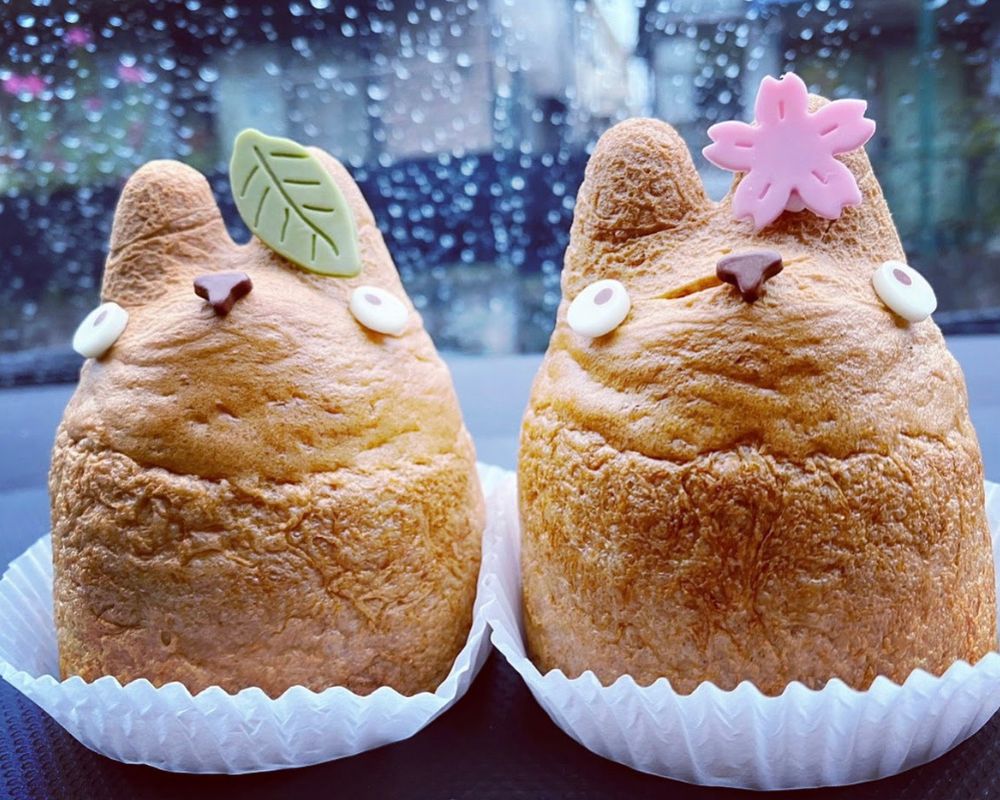
This popular bakery is a stand-out place to visit, especially if you love aesthetic pastries!
All fans of Japanese culture would be familiar with Totoro, one of Hayao Miyazaki’s most popular anime characters. This bakery pays tribute to Totoro by baking one of the most adorable puff pastries you’ll ever lay your eyes on, in the shape of Totoro!
Located in the residential areas of Setagaya, it’s surprisingly always teeming with locals and tourists, and if you’re keen on grabbing one for yourself, we recommend not leaving it until late in the day, as it may sell out!
- Address: 5 Chome-3-1 Daita, Setagaya City, Tokyo 155-0033, Japan
- Directions: It is a 3-minute walk from Setagaya-Daita Station on the Odawara Line.
You can also check out our article about the best anime-themed cafes in Tokyo for more similar recommendations.
15. Leisurely Explore Sangenjaya
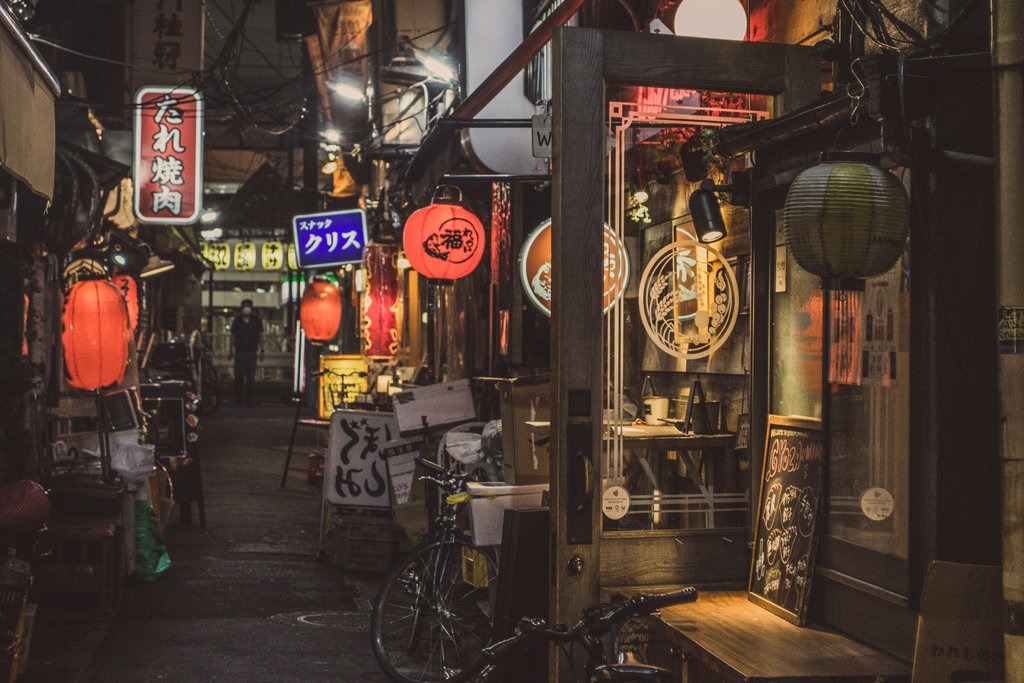
Sanjenjaya is yet another hidden gem neighborhood within Setagaya that deserves much more recognition.
From delicious traditional and modern Japanese restaurants to exciting annual festivals, Sangenjaya offers a slice of Japanese life for the regular tourist.
The aforementioned Carrot Tower is located in Sangenjaya, and it’s also the location of the enormous annual Setagaya Boroichi Flea market!
A popular local but otherwise under-the-radar festival that happens every October in Sangenjaya would be the Pan Matsuri, or the Bread Festival. Festival-goers to the Pan Matsuri will witness a collection of stalls set up with the freshest, tastiest bread options. You’ll be able to smell it from miles away! If you’re a carb enthusiast, we highly recommend that you carve out a bit of time to attend.
You can more info about Sangenjaya in this article: Best Things To Do In Sangenjaya.
Directions: Sangenjaya Station is located a short distance from Shibuya. It lays on the Den-en-toshi Line as well as the Setagaya Line.
16. Shirubee Shimokitazawaten Restaurant

This izakaya restaurant located in the heart of Shimokitazawa is as authentic as they come. The smokey smell from miles away, a lively, friendly atmosphere, and chefs who absolutely know what they’re doing are things that you can expect when you enter this restaurant
Shirubee has been praised by past-goers as simply having no ‘miss’ dishes. In fact, you’re guaranteed a delicious dish regardless of what you order!
However, many people have particularly commended them on their mackerel, karaage, and curry. If you get the chance, try and get a seat around the middle area, where you can witness the excitement of the chef’s joyfully preparing your meal.
- Address: 2 Chome-18-2 Kitazawa, Setagaya City, Tokyo 155-0031, Japan
- Directions: It is a 4-minute walk from Shimokitazawa Station.
17. Ride the Tokyu Setagaya Line Tram

Rather than a place in Setagaya, this is more of an experience! The Tokyu Setagaya Line is one of only two tramways in Tokyo still active. The line passes through the residential areas of Shimotakaido and Sangenjaya.
This adorable two-car tram provides passengers with a comfortable, joyful, and picturesque ride experience, especially when compared to the larger, much faster train lines a mere stone’s throw away.
During spring/summer, the relaxing tram ride is made even more beautiful by the hydrangeas that line the tracks that you pass through.
Directions: You can access this tram via Setagaya Station.
18. Visit Gotoh Museum

The Gotoh Museum is yet another eccentric museum located in Setagaya. In particular, the Gotoh Museum focuses on highlighting a unique collection of East Asian arts, crafts, and cultural artifacts.
The main attraction would be “The Tale of Genji”, an illustrated hand-scroll that many believe to be the world’s first-ever novel!
- Address: 3 Chome-9-25 Kaminoge, Setagaya City, Tokyo 158-0093, Japan
- Directions: It is a 5-minute walk from Kaminoge Station.
19. Eat at Umegaoka Sushi no Midori Tamagawa

Be prepared to wait in a queue, because Umegaoka Sushi no Midori Tamagawa is not only a hit amongst the locals, it’s already made its way onto the radar of international visitors! It’s got several locations around Tokyo, however, they get just as busy as each other, so we recommend you line up early and grab a ticket as soon as you can.
Its popularity is well-deserved, though, because this sushi joint offers premium everything: service, food quality, ambiance – the dining experience here is *chefs kiss*
For the most well-rounded experience, we recommend you order a set; you’ll get to try some of their best sushi, and it also comes with chawanmushi.
- Address: Japan, 〒158-0094 Tokyo, Setagaya City, Tamagawa, 3 Chome−17−1
- Directions: It is a 5-minute walk from Futako-Tamagawa Station.
20. Visit Tsurumaki Jissoin

This quaint and endearing temple ground located near Kamimachi Station is quite a hidden gem. Whilst the grounds aren’t too large and can be explored in a few minutes, we recommend taking your time to pursue the pathways and take in the detailing of the temple.
From the intricate small statues displayed to the surrounding fountains, carefully prepared rock formations, bamboo groves, hedges, and towering trees, visiting Tsurumaki Jissoin is like a breath of fresh air.
The two-tiered pagoda in the middle of the temple grounds is quite a sight; built from fresh wood, it stands out amongst the greenery for its clean lines and traditional look.
- Address: 3 Chome-29-6 Tsurumaki, Setagaya City, Tokyo 154-0016, Japan
- Directions: It is a 10-minute walk from Setagaya Station.
At first glance, Setagaya might not be the most exciting place to visit for tourists, with its peaceful residential areas and widespread subtle attractions. However, as more and more people look at conscious, slow, and relaxing ways to explore Tokyo, Setagaya comes to mind.
It offers a number of cultural museum attractions, endless options for authentic Japanese restaurants, fun and exciting cafes to explore, and lots of green spaces to unwind and relax in.
Setagaya is one of Tokyo’s best kept secrets, but it won’t be that for long!
To visit more cool neighbourhoods in Tokyo, make sure you check out our blogs posts about Nakameguro and Kichijoji!
